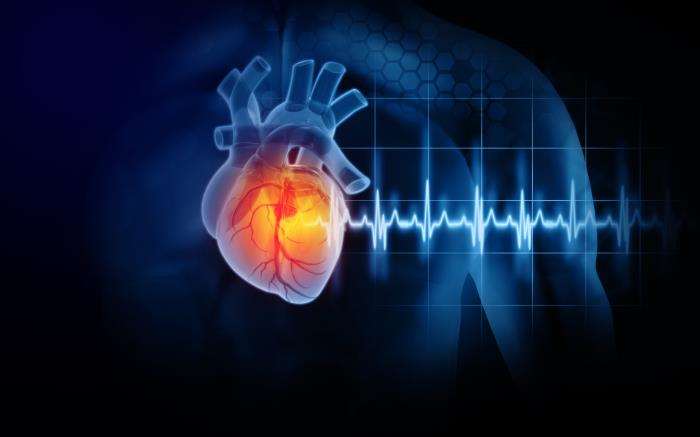Heart transplant surgery is a critical medical procedure designed to replace a failing heart with a healthy donor heart. Reserved for patients with severe or end-stage heart conditions, the surgery provides hope for those who have exhausted other treatment options. However, determining eligibility for such a life-altering procedure involves a comprehensive evaluation to ensure the best outcomes for the recipient.
Medical disclaimer: This content is for general awareness and does not replace a doctor’s consultation. For diagnosis or treatment decisions, consult a qualified specialist.
Who Needs a Heart Transplant? Identifying Severe Heart Conditions
Heart transplants are primarily recommended for patients with end-stage heart failure that cannot be managed with medications, lifestyle changes, or less invasive surgeries. Conditions such as cardiomyopathy, coronary artery disease, congenital heart defects, or recurrent life-threatening arrhythmias are common reasons for considering transplantation. These patients often face severely limited quality of life and have a high risk of mortality without intervention.
Assessing the Severity of Heart Failure for Transplant Eligibility
The severity of heart failure is a critical factor in determining transplant eligibility. Physicians assess this using advanced diagnostic tools like echocardiograms, cardiac MRIs, and stress tests. Patients with significantly reduced ejection fraction or those who frequently require hospitalization for heart failure symptoms are typically prioritized.

Importance of Age and General Health in Determining Eligibility
Age and overall health play a pivotal role in heart transplant candidacy. While there is no strict age limit, younger patients generally have better post-transplant outcomes. Factors like organ function, physical fitness, and the absence of debilitating conditions are considered to determine if a patient is strong enough to endure the surgery and recovery process.
The Role of Advanced Diagnostic Tests in Evaluating Patients
Modern diagnostic tools provide a detailed understanding of a patient’s heart condition and overall health. Tests such as pulmonary function tests, cardiac catheterization, and lab work to evaluate kidney and liver function help doctors assess the patient’s suitability for transplantation. These tests also identify potential risks that could complicate surgery or recovery.
How Comorbidities Impact Eligibility for Heart Transplant Surgery
The presence of comorbidities such as diabetes, kidney disease, or uncontrolled infections can significantly affect transplant eligibility. These conditions may increase the risk of complications during or after the procedure. Careful management and stabilization of comorbidities are often required before a patient can be placed on the transplant waiting list.
Psychological Evaluation: A Key Component of Eligibility
Psychological health is a crucial, yet often overlooked, aspect of heart transplant candidacy. The procedure demands a long-term commitment to post-surgical care, including medication adherence and lifestyle changes. Psychological evaluations help determine a patient’s readiness and ability to cope with the physical and emotional demands of transplantation, ensuring better outcomes and long-term success.
The Importance of Compliance with Medical Recommendations
Adhering to medical advice is a cornerstone of heart transplant eligibility and success. Patients must demonstrate a commitment to taking medications, attending follow-up appointments, and making necessary lifestyle changes to ensure the long-term viability of the transplanted heart.

Financial Considerations and Accessibility in India
Heart transplant procedures can be costly, and patients must assess their financial readiness, including surgery costs, post-operative care, and lifelong immunosuppressive therapy. Insurance coverage, government aid programs, and support from transplant centers can help make the procedure more accessible.
How Lifestyle Habits Affect Eligibility for a Heart Transplant
Lifestyle habits like smoking, alcohol use, and poor diet can disqualify a patient from transplant eligibility. Demonstrating the ability to adopt and sustain a heart-healthy lifestyle is critical for receiving and maintaining a new heart.
Evaluation of Previous Heart Surgeries or Interventions
Patients with a history of heart surgeries or interventions are thoroughly evaluated to determine how these factors may impact transplant outcomes. Scar tissue, prior complications, and overall cardiac health are assessed during the eligibility process.
The Role of BMI and Nutritional Status in Eligibility Decisions
Body Mass Index (BMI) and nutritional health play significant roles in transplant candidacy. Obesity or malnutrition can complicate surgery and recovery, making it essential for patients to achieve and maintain a healthy weight and nutritional status.
Understanding the Need for a Stable Support System
A reliable support system of family, friends, or caregivers is essential for post-transplant success. These individuals provide emotional, logistical, and physical support during the recovery process and help ensure adherence to medical recommendations.
Criteria for Donor-Recipient Compatibility in Heart Transplants
Donor-recipient compatibility is determined by factors such as blood type, size of the heart, and tissue matching to minimize the risk of rejection. Advanced compatibility testing ensures the best possible match between donor and recipient.
Special Considerations for Pediatric and Elderly Patients
Pediatric patients require specialized care tailored to their developmental needs, while elderly candidates are evaluated for their overall health and ability to tolerate the procedure. Both groups undergo a thorough risk-benefit analysis before being considered for transplantation.
The Role of Regional Heart Transplant Centers in India
Regional transplant centers in India play a pivotal role in providing comprehensive care, from evaluation to surgery and follow-up. These centers are equipped with advanced technology and multidisciplinary teams to support complex transplant cases.
How Waiting Lists Work for Heart Transplants in India
Patients are placed on waiting lists based on the severity of their condition, blood type, and other compatibility factors. The allocation process is regulated to ensure fairness and prioritize those in critical need.
Alternatives for Patients Who Do Not Meet Eligibility Criteria
Patients who do not qualify for a heart transplant may explore alternative treatments such as ventricular assist devices (VADs), palliative care, or experimental therapies. These options aim to improve quality of life and manage symptoms.
Preparing for the Evaluation Process: What Patients Should Know
Patients should be prepared for a comprehensive evaluation process, including medical tests, psychological assessments, and consultations with a transplant team. Understanding the process and addressing any concerns in advance can help ensure a smoother experience.
Risks and Complications of Heart Transplant Surgery
Learn about the risks and complications of heart transplant surgery. This post covers the potential challenges and complications patients may face, including infection, rejection of the donor heart, and medication side effects, as well as how to mitigate these risks.
The Importance of Post-Transplant Rehabilitation Programs
Explore the significance of post-transplant rehabilitation programs. This article highlights the importance of physical therapy and rehabilitation to improve recovery and overall quality of life for transplant patients, ensuring long-term health after the procedure.
Conclusion: Meeting the Requirements for a Successful Transplant
Eligibility for a heart transplant depends on a combination of medical, lifestyle, and psychological factors. By adhering to medical recommendations, maintaining a healthy lifestyle, and seeking support from specialized centers, patients can improve their chances of meeting the criteria and achieving a successful transplant.
Best Heart Transplant in India
The Best Heart Transplant in India offers a life-saving solution for patients with end-stage heart failure, using advanced surgical techniques and comprehensive post-transplant care.
Best Heart Transplant Hospitals in India
The Best Heart Transplant Hospitals in India provide state-of-the-art facilities, skilled transplant specialists, and multidisciplinary teams for seamless patient care and recovery.
Heart Transplant Cost in India
The Heart Transplant Cost in India is structured to offer affordability while ensuring access to world-class transplant services and comprehensive care packages.
Best Heart Transplant Surgeons in India
The Best Heart Transplant Surgeons in India have extensive experience in performing complex transplants, ensuring precise techniques and personalized patient care for optimal outcomes.
FAQs
What are the primary conditions that make a person eligible for a heart transplant?
Severe heart failure that cannot be managed with medications or other treatments is the main condition for heart transplant eligibility.
Is there an age limit for heart transplant surgery in India?
While there is no strict age limit, candidates are evaluated based on overall health, comorbidities, and ability to withstand surgery and recovery.
What medical tests are required to determine transplant eligibility?
Tests include blood work, imaging studies, cardiac function tests, and compatibility screenings to assess overall health and donor suitability.
Can patients with comorbidities undergo heart transplant surgery?
Patients with controlled comorbidities may still qualify, but those with severe, unmanaged conditions may be deemed ineligible.
How is psychological health evaluated for transplant eligibility?
Psychological assessments determine a patient’s ability to cope with the emotional challenges of transplantation and adhere to post-operative care plans.